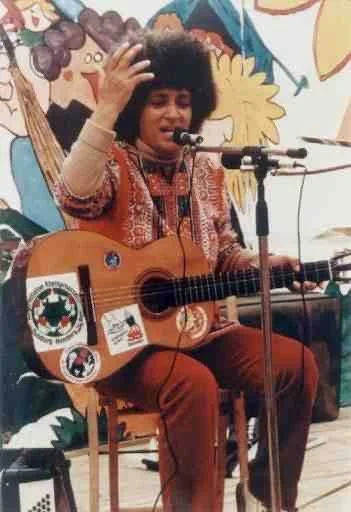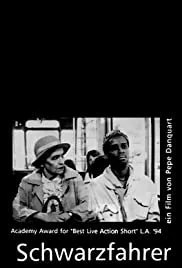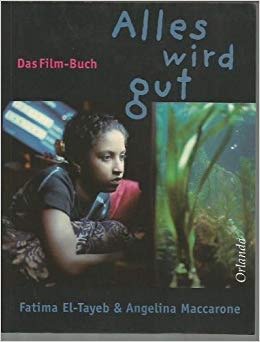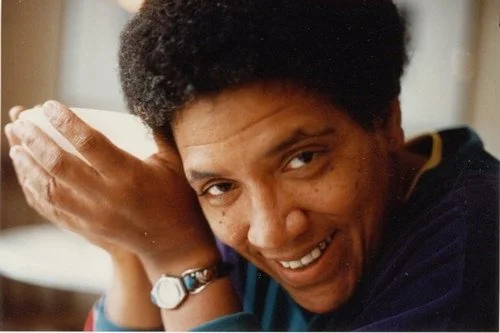- Activism
- Animation
- Asylum
- Austria
- Berlin
- Black Germans
- Childhood
- Cologne
- Colonialism
- Comedy
- DDR
- Documentary
- East/West Germany
- Environment
- Food
- Hamburg
- Health
- Holocaust
- Immigration
- Intergenerational Families
- Jewish
- Judicial system
- Lesbian/Gay
- Lübeck
- Munich
- National Socialism
- Politics
- Pomerania
- Racism
- Religion
- Sexism
- Short films
- Stuttgart
- Switzerland
- Twins
- Weimar Republic
Auf den zweiten Blick / At Second Glance
At Second Glance is set in Berlin and features three couples living with vision loss. This thought-provoking movie about love and perception asks us to engage with, and expand, our understanding of diversity, including different abilities.
This award-winning film centers on Kay and Falk, Benjamin and Elena, Till and Pan in the big city juggernaut Berlin—who meet, discover and feel attracted to each other.
Hoffnung im Herz
A moving documentary about the life and untimely death of Ghanaian-German poet, academic and political personality May Ayim. Ayim was one of the founders of the Black German Movement, and her research on the history of Afro-Germans, but also her political poetry, made her known in Germany and other countries.
Ayim wrote in the tradition of oral poetry and felt a strong connection to other black poets of the diaspora. Poetry gave her an opportunity to confront the white German society with its own prejudices. Interviews and poems reveal the search for identity, how and why the term Afro-German was introduced. An insightful look at how a young black woman experiences the German reunification.
Fasia Jansen – Eine deutsche Biographie
Die uneheliche Tochter des liberianischen Generalkonsuls Momulu Massaquoi und des deutschen Zimmermädchens Elli Jansen erlebte schon früh Hänseleien und Ausgrenzung auf Grund ihrer Hautfarbe als auch auf Grund ihrer unehelichen Geburt. Die in einem Hamburger Arbeiterviertel aufgewachsene Jansen durchlebte in der Zeit des Nationalsozialismus die Probleme eines offensichtlich „nichtarischen“ Menschen.
Schwarzfahrer
A young black man is verbally harassed by an older woman on a streetcar, while the other passengers remain silent. He finally exacts his revenge. Pepe Danquart's Oscar-winning Schwarzfahrer is a look not only at racism, but at its subtlety. The old woman who rants against immigrants is odious enough, but more important is that no one challenges her.
Alles wird gut
This savvy and sexy film opens with its heroine, Nabou, a black lesbian living in Germany, being unceremoniously dumped by her lover Katja, a self-centered, blue-haired, white punker. Nabou takes a job cleaning Kim’s apartment, the straight black woman who lives in the same building just below Katja, ostensibly to stay as close as possible to her ex. Meanwhile Kim, with her own melodrama to deal with, feels overworked and underappreciated by her boyfriend, who is also her boss at the ad agency for which she works. While at first cool to and seemingly uninterested in each other, Nabou and Kim’s relationship blossoms over time, even as Katja decides she wants Nabou back and Kim’s boyfriend pops the big marriage question. With its hip soundtrack, overlapping story lines, and satirical take on racism, Everything Will Be Fine is a modern lesbian comedy sure to surprise and please.
Brown Babies: The Mischlingskinder Story
Brown Babies: The Mischlingskinder Story tells the personal and painful stories of Afro-American-German Brown Babies in a world where biracial, bicultural children were unwanted, ignored and forgotten. Abandoned by enemy nations and their families. Brown Babies: The Mishlingskinder Story shows how these children overcame extraordinary obstacles and honors the African-American woman who fought to save their lives when no one else would. Many archival images appear courtesy of the AFRO American Newspapers Archives.
Black in Europe
This was recorded in the early 1990’s as an expose on Blacks in Europe. Ika Hügel-Marshall appears in this segment on Afro-Germans. This is a copy made from a VHS tape.
Audre Lorde-the Berlin Years: 1984-1992
Audre Lorde – The Berlin Years 1984 to 1992 focuses on Audre Lorde’s relation to the German Black Diaspora, her literary as well as political influence, and is a unique visual document about the times the author spent in Germany. The film is also for coming generations a valuable historical document of German history, which tells about the development of an Afro-German movement and the origins of the anti-racist movement before and after the German reunification.








